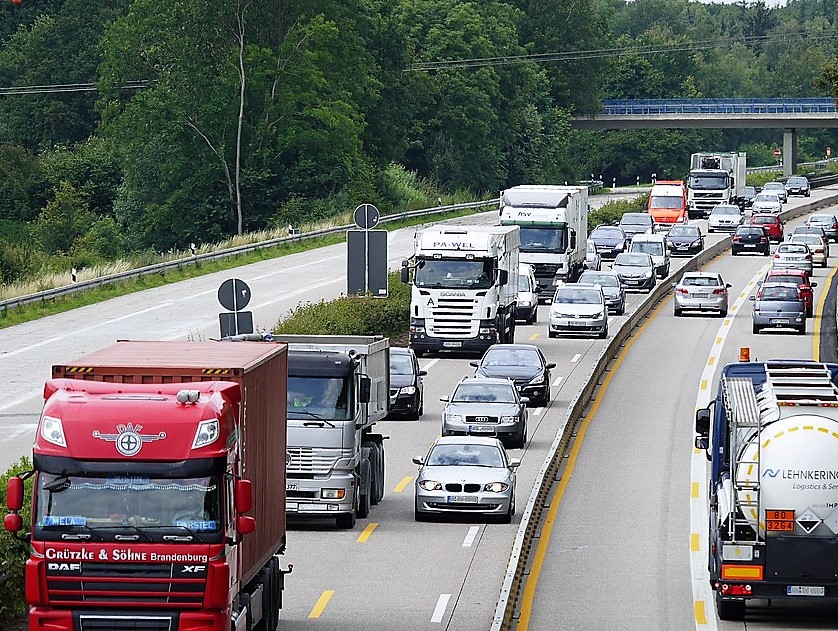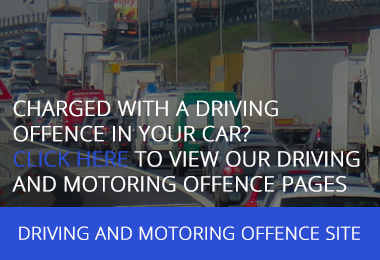Roadside Stops can Stop Your Business in its Tracks: Prohibitions, PG9s and the DVSA

Having one of your vehicles stopped by the DVSA can be a headache for any operator. Even if your vehicle and driver are given a clean bill of health, the stop itself will usually mean a delay to your daily work schedule. If the stopping officer does uncover infringements during his or her checks, failing to act on them can spell disaster for your business.
So, what are the implications of a roadside stop? Here are five of the most common questions our transport lawyers get asked:
1) Can I Choose Not to Stop for the DVSA?
It is a criminal offence to resist or wilfully obstruct a uniformed DVSA examiner or stopping officer. If one of your drivers knows that a uniformed examiner or stopping officer is trying to pull him over, he must not ignore them. As well as being an offence, a deliberate failure to cooperate with a DVSA officer will be taken very seriously by a Traffic Commissioner.
2) What Roadside Checks can the DVSA Make?
The most common DVSA vehicle checks made are for roadworthiness (maintenance / brakes / lights etc) and for tachograph offences (rest periods / working time / breaks etc). They can also check for other matters such overloading, insecure loading, breaches of cabotage regulations etc. In short, the DVSA are the “eyes and ears” of the Traffic Commissioner.
3) What is the Effect of a Prohibition Notice?
If a fault has been found with one of your vehicles, you or your driver can expect to receive a PG9 at the roadside. This is a prohibition notice setting out the faults which have been found,. Depending on the seriousness of the defects found, a PG9 can either be immediate, or delayed.
If a DVSA officer believes that the faults on the vehicle are caused by a significant failure of the operator’s maintenance systems, he or she will mark the prohibition with an “S”. This is likely to lead to a follow up visit by the DVSA on the operator’s own premises, and could even result in the operator being interviewed under caution.
For more information on overloading prohibitions, click here.
4) Do Roadside Stops Go on My Record?
All operators have an “Operator Compliance Risk Score”, or OCRS. This is more commonly known as the “traffic light” system. . Every time a fault is found with one of your vehicles, it will have a negative effect on your score. The worse your score is, the more likely it is that your vehicles will be stopped again in the future, and the greater the opportunity for further faults to be found.
To avoid this vicious spiral, it is essential that you act as soon a fault is found. If your vehicles keep receiving prohibitions for roadworthiness defects, perhaps it is time to look again at whether your maintenance provider is up to scratch? Ultimately, the buck stops with you.
5) Help, My Vehicles Have Prohibitions, What Should I Do?
Act quickly! As soon as defects are found, you need to be investigating how they occurred, where the weakness in your compliance system is, and act to fix it to prevent it happening again. The longer you leave it, the more often your vehicles will be stopped, and the greater the likelihood that a DVSA investigation will commence. Do nothing and you could quickly find yourself before the Traffic Commissioner at Public Inquiry, with your operator’s licence hanging in the balance.
The good news, is help is on hand. Our transport lawyers have a wealth of experience advising operators, drivers and transport managers, providing assistance in connection with DVSA investigations, and representation at hearings before Traffic Commissioners up and down the country. See our recent cases to find out what we have been up to.
For a free, initial consultation with one of our transport lawyers, get in touch today.


